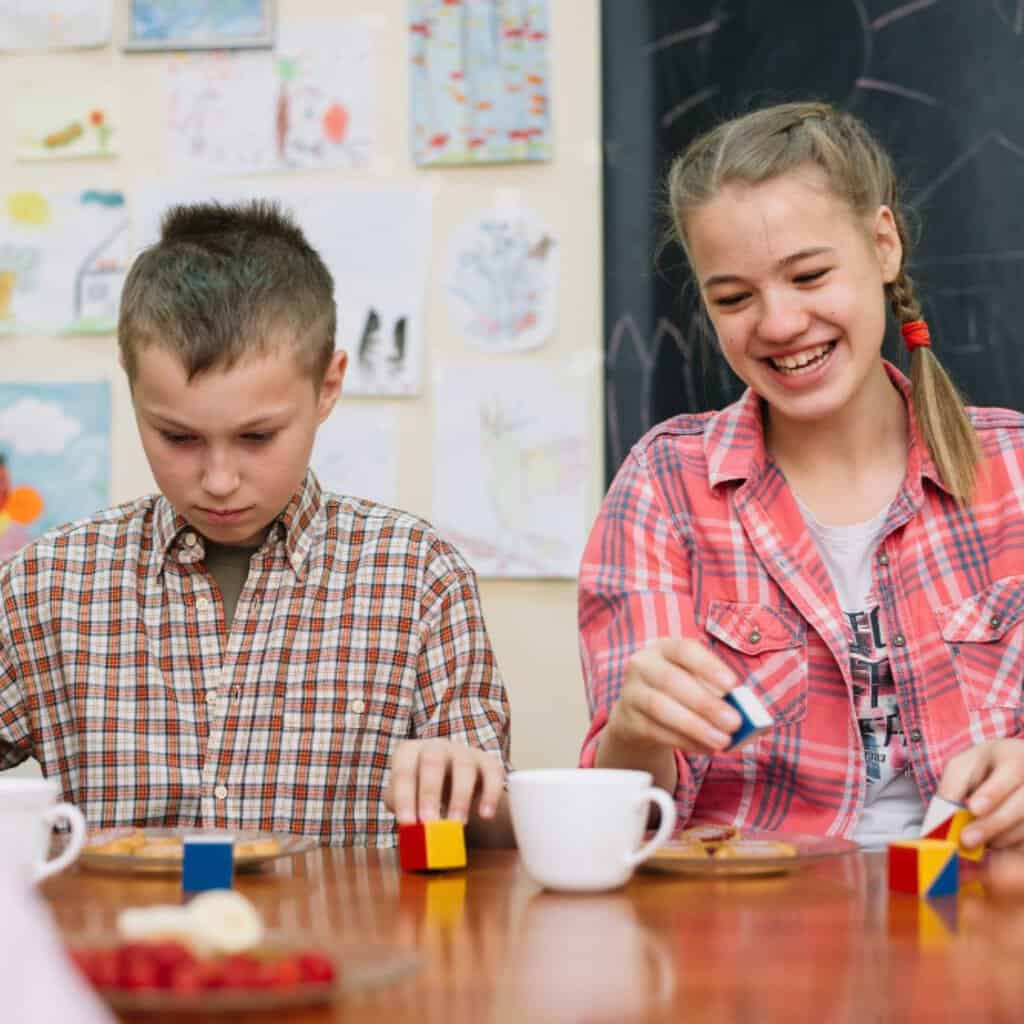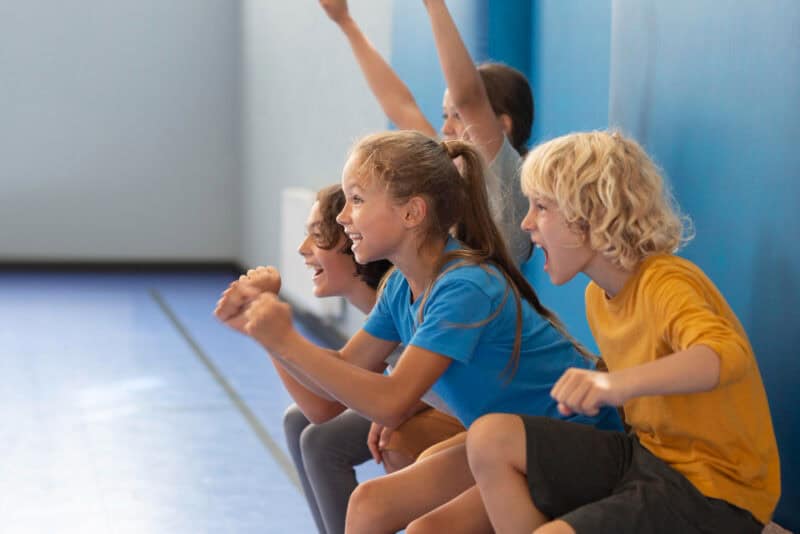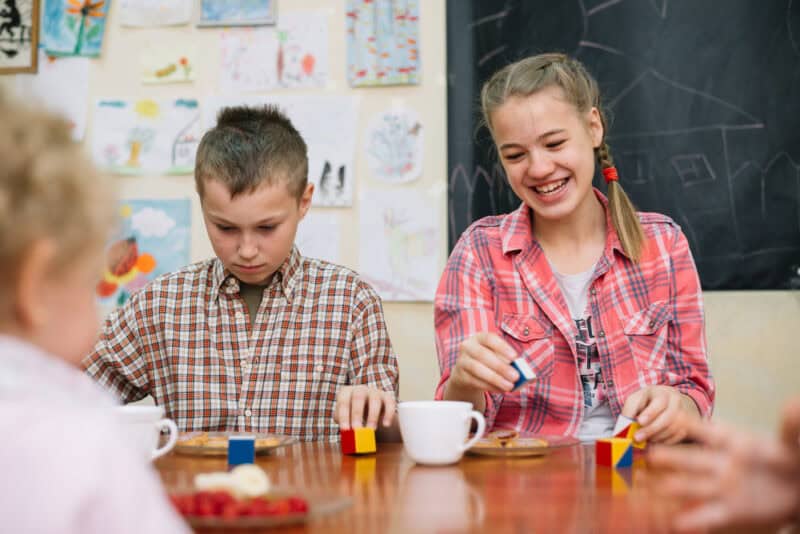Making education fun is one of the best ways to help kids learn, focus, and stay engaged in their school tasks. Of course, it can seem like a lot of extra work for parents and teachers to do this on top of their normal planning. The good news is that whether you homeschool or are just trying to make learning like homework more engaging and enjoyable for your kids, you have come to the right place. Indeed, in the post below, you can find 15 fantastic ways to make learning more fun. Just keep reading to find out what they are.
1. Add movement
Not every child is good at sitting still and focusing on academic subjects for long amounts of time. Few children are. That is why you must include plenty of physical activity along with learning. Indeed, integrating exercise with learning will not only help to engage your kids and ensure they focus but will be better for their mental and physical health too.
Of course, any type of drill or imposing attitude needs to be avoided here. Instead, the whole idea is about making movement fun. It can be as simple as getting the kids to walk to one side of the room to vote on a question instead of just putting up their hands, or if you are working with a group, doing a standing timeline instead of drawing one out. In the latter scenario, the kids each represent a specific date and have to put themselves into the right order.
2. Leverage your kid’s interests
Most kids have something that they have a burning passion for, whether it’s Pokemon, Legos, Princesses, Pirates or unicorns. You can make learning so much more fun for them by using these special interests in lessons or to help with homework.
For example, in the classroom, you could use Pokemon to help improve grammar. While at home you could help kids learn about physics, robotics, and programming with Lego kits.
Other simple options include using the things that they are interested in as examples. For instance, if you are learning about money, you might frame questions in terms of how many Lego kits are certain items worth. Alternatively, you can find books that line up with the theme of your child’s special interest to help encourage them to read and boost their enjoyment.
If you are a home educator, you could even create an entire project around your child’s special interest, where they get to research it and create a booklet and presentation detailing what they have learned.
3. Encourage them to get into an argument
OK, so this title is a bit misleading, as what we are encouraging here is to allow your kid to debate a subject. This is because debates are a very good way of making sure someone understands a topic, as they have to be able to argue against any negative points the other side makes. Debates are also very good practice for organizing ideas and arguments in a logical way. You’ll likely find your kids enjoy debating as well. Although more introverted children may be reluctant to present and debate with the whole class. You can get around this by allowing debates to happen in pairs or smaller groups, which can be less intimidating.
4. Use art and music for learning
There are plenty of ways to make learning more fun by incorporating music and art into activities. One simple way of doing this is to teach your child how to produce sketch notes. These are visual notes that are not only more fun to produce but can make revision a great deal more effective as well.
Another way of including art in learning activities is to ask kids to sketch out their ideas and designs for things. You can then ask them to present these sketches and explain how the things they have designed might work, as well as answer questions.
Music can also be easily integrated into learning as well. One of the most simple ways of doing this is to start a lesson or session with a song that covers one or more of the most important themes of the lesson. You can then ask the kids to pick out what they think these might be.
Musical lyric writing is also a wonderful way of practising creative writing, analogies, similes and metaphors. You could even ask your students to craft a music video to extend the task and make it even more creative and fun.
5. Prioritize breaks and change tasks
Another way you can make learning more fun is to prioritize breaks. Yes, this can seem counterproductive at first but it makes a lot of sense. This is because the human brain prefers to focus intensity on a specific task for a short amount of time, usually around 10-20. Any longer than this without a break and concentration can become much more challenging so you can make learning easier by making sure there are plenty of short breaks between tasks.
You can also enhance the learning experience for your class or homeschooled child by encouraging them to change tasks after this time as well. For example, for homework, you can ask them to work on one subject for 10 mins, take a 5 mins break where they can play a fun, but educational game like this crossword, after which they can then work on another subject. This will help refresh their brain and focus and so promote concentration. Then, they can always go back to the initial subject if it requires more time later on.
6. Harness the power of the digital world

These days, most kids are natives of the digital world as they have grown up with devices and the internet. This means they are both used to learning online and enjoying online content. The good news is that you can harness this to make learning any subject more interesting and engaging.
For example, the Internet can be used to research a project, to get more details, or to find inspiration for a creative task. Platforms like YouTube boast plenty of experts that convey information in a fun and bite-sized way including those that focus specifically on science, history, math or literature.
There are also plenty of forums, and online encyclopedias such as Wikipedia that your child can use for resources. Although of course, making sure they know the basics about how to stay safe online before they begin is vital.
7. Integrate choice
Being a kid can be tough, especially when it seems like everyone else has control over you and your time and is constantly telling you what to do. The flip side of this is that you can make learning more fun for kids by giving them more choice, autonomy and control.
One way of doing this is to allow them to choose the subject they will be studying or creating a project on. For example, you may be studying Roman history and provide the option of either creating a project on a typical day’s life, how Roman Baths work, or how the Roman roads were constructed. You can of course integrate other elements we have discussed here such as using arts and crafts skills to build a model demonstrating an aspect of the subject, and using online resources for research.
Another option that can help promote choice is to allow the child to pick the kind of task they will do on a given subject. For example, they can choose from creating a booklet, a presentation, or writing an essay.
8. Play some games
By making learning into a game, you can also make it way more fun and engaging for those you need to teach or support with their education. Fortunately, there are plenty of ways you can involve fun games in learning while still retaining plenty of educational merit.
One simple way is to convert board games for the classroom. Pictionary is a great way to learn key terms or vocabulary, as are games like Articulate or Taboo.
9. Find motivation that works
Last of all, motivation can make a world of difference in how much your kids enjoy learning. After all, we wouldn’t expect to go to work every day without having some important motivating factor like paying our mortgage, saving for a new car, or going on vacation, so why should we expect our kids to be any different?
Of course, instilling an intrinsic love and respect for learning in kids is always a good thing, but some additional motivation won’t hurt either. This is where you need to sit down with your child/ class and find out what motivates them. For example, some kids will work hard all week for enough points for a small toy prize. For others, extra outside time or playtime is what will have them focusing the best. Remember, we all have our motivations, and this goes for the kids you are educating too; harnessing them can make all the difference to their enjoyment and their learning.



